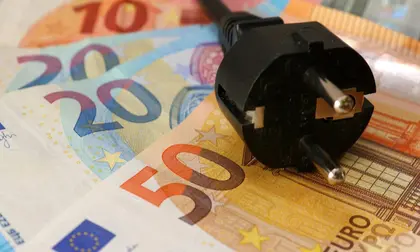Energy prices in Europe remain at a record high due to sanctions on Russian oil and reduced gas supplies. Electricity prices hovered around 218 euros per kilowatt hour on the exchanges this June, compared to 74 euros one year ago. And inflation also remains high in the Eurozone at 8.6 percent. Europe’s press worries about what the situation will be in the autumn and winter.
Today, Europe’s press debates the rising cost of international energy prices that are a result of sanctions on Russia. Here are some opinions from a selection of European publications presented by eurotopics.
JOIN US ON TELEGRAM
Follow our coverage of the war on the @Kyivpost_official.
The price of showing solidarity with Kyiv
In the UK, demonstrators have blocked several motorways to protest high fuel prices. The British should be willing to make these sacrifices, The Times stresses:
“The anger is understandable. Fuel prices have almost doubled in the past two years. … That does not mean the government should give in to the protesters. The principal reason for the rise in fuel prices is the war in Ukraine. No war is costless. The western alliance has decided to fight this one not with blood but with treasure, in part by using its economic clout to sanction Russian exports including oil. Higher energy costs are the price of opposing the Russian invasion.”
Maltese have their own interests at heart
According to the latest Eurobarometer survey, values such as democracy and freedom are more important than price stability for 59 percent of EU citizens. This is not the case in Malta, however, where 63 percent of the population is more interested in price stability. The Times of Malta comments critically:
“Democracy and freedom remain ‘abstract’ for many Maltese, while money in the pocket is paramount, even as their brothers and sisters in Ukraine are being bombed out of existence. … While Malta is not officially neutral on the war, it remains a distant event, something happening to others, something beyond our immediate interest or concern. Insofar as surveys go, a careful and reflective ‘reading’ of this Eurobarometer tells us much about ourselves.”
Portugal faces tough choices
The Portuguese government must act quickly, writes energy expert Mário Guedes in Observador:
“In the first months of 2022 Portugal had to import more than a billion euros worth of electricity from Spain. … Portugal must not wait for the weather to solve its energy problems. Otherwise, in addition to the economic disaster we could face electricity rationing. It is therefore important that the government listens to the experts. It must seriously consider the alternatives for coping with the country’s substantial electricity deficit, even if it means reactivating the Pêgo coal-fired power plant.”
You can also highlight the text and press Ctrl + Enter



